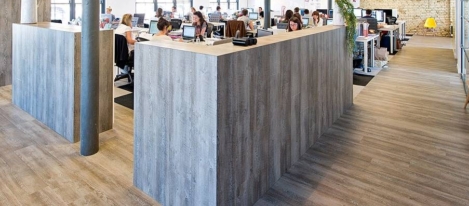July 6, 2015
First office pre-let announced for new Victoria mixed-use scheme
 Land Securities has announced the first office pre-let at its Nova scheme based at London’s Victoria. Private equity investor Advent International has agreed to take more than 25,000 sq ft on the 8th floor of Nova South on a 15 year lease. Set on a 5.5 acre site, the first phase of the mixed use Nova scheme will deliver 480,000 sq ft of grade A office space through two distinct buildings – Nova North and Nova South. The Nova scheme is the result of a collaboration between four architectural firms – Benson + Forsyth, Flanagan Lawrence, Lynch Architects and, overseeing the project, PLP Architecture. On completion the site will comprise five buildings delivering 603,000 sq ft of Grade A offices, 193,000 sq ft of apartments and 85,000 sq ft of restaurant, bar and retail space within a new, 82,700 square feet, pedestrianized, landscaped public space, opposite Victoria’s mainline railway station.
Land Securities has announced the first office pre-let at its Nova scheme based at London’s Victoria. Private equity investor Advent International has agreed to take more than 25,000 sq ft on the 8th floor of Nova South on a 15 year lease. Set on a 5.5 acre site, the first phase of the mixed use Nova scheme will deliver 480,000 sq ft of grade A office space through two distinct buildings – Nova North and Nova South. The Nova scheme is the result of a collaboration between four architectural firms – Benson + Forsyth, Flanagan Lawrence, Lynch Architects and, overseeing the project, PLP Architecture. On completion the site will comprise five buildings delivering 603,000 sq ft of Grade A offices, 193,000 sq ft of apartments and 85,000 sq ft of restaurant, bar and retail space within a new, 82,700 square feet, pedestrianized, landscaped public space, opposite Victoria’s mainline railway station.



































July 6, 2015
Humans will remain at the heart of the emerging digital workplace
by Maciej Markowski • Comment, Flexible working, Technology, Workplace design
(more…)